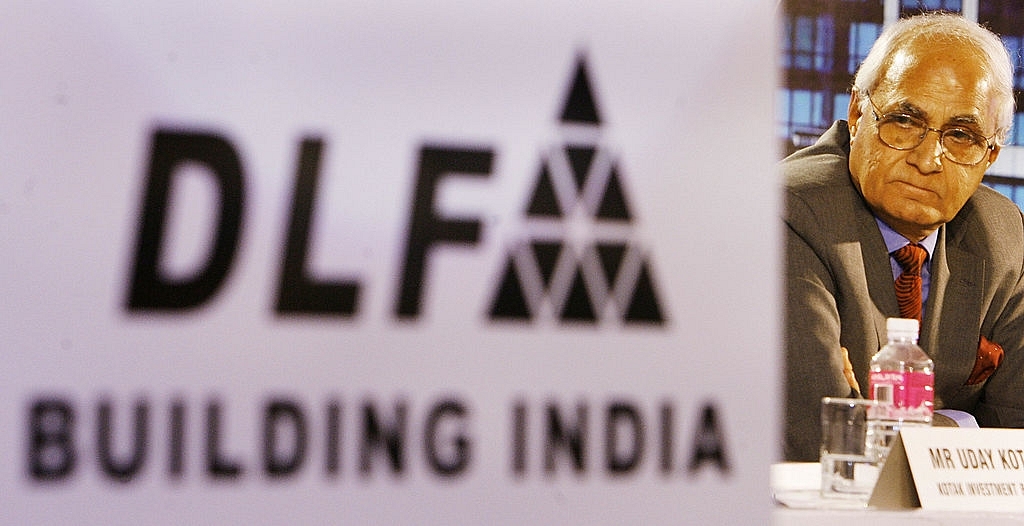Business
DLF’s Zero-Debt Wish Is Just What Doc Ordered; Promoters Should Delist
- Real estate is too dicey a business to allow average investors to play venture capitalists to tycoons

DLF chairman KP Singh
Few companies have consistently destroyed value for shareholders as DLF, the real estate major, has. From a January 2008 high of over Rs 1,200, the DLF share is just over a 10th of that value – which means it has erased investor wealth of around Rs 1,75,000 crore.
And remember, this has happened in an industry where the assumption is that prices can only go up.
A report in The Economic Times today (29 June) says that DLF’s promoters – KP Singh and family – plan to wipe out the company’s Rs 22,202 crore debt quickly, by selling their 40 percent stake in DLF Cyber City Developers Ltd (DCCDL), a rentals unit, for around Rs 12,000-13,000 crore, and then injecting Rs 10,000 crore in the company by issuing preferential equity to the promoters. Since more than half the group’s debt is with DCCDL, the remaining debt on the company’s balance-sheet will be repaid, making the company debt-free in one shot.
The preferential issue will raise the promoter stake well above the 75 percent mark, making it important to bring in new investors. Companies that don’t have a minimum of 25 percent non-promoter equity have to be delisted under Sebi norms.
The debt elimination plan is good news for DLF’s future, but not necessarily for shareholders who have taken most of the hit from the company’s long-term value destruction.
A better idea would be to take the company private by offering shareholders a higher-than-market exit price through a buyback, either by the promoters directly (through an open offer) or through a repurchase after equity injection.
The paradox with listed real estate players is that even while property prices have been rising (till at least three years back), none of this showed up in commensurate profits or share prices. This is why the market values of almost all realty companies nosedived, often by 90 percent from 2008 peak prices.
Given the risky nature of the business, and also the tendency of large parts of property deals to be settled in cash which may bypass shareholders, most real estate companies should probably be taken private.
This way promoters can avoid loading risks onto minority shareholders, who have no clue what is really going on in the business.
Real estate is too dicey a business to allow average investors to play venture capitalists to tycoons. It is institutional investors who should shoulder the risks.
In any event, the business needs to be reoriented towards equity as against the debt that brought it down. DLF’s move needs to become a trendsetter.
Introducing ElectionsHQ + 50 Ground Reports Project
The 2024 elections might seem easy to guess, but there are some important questions that shouldn't be missed.
Do freebies still sway voters? Do people prioritise infrastructure when voting? How will Punjab vote?
The answers to these questions provide great insights into where we, as a country, are headed in the years to come.
Swarajya is starting a project with an aim to do 50 solid ground stories and a smart commentary service on WhatsApp, a one-of-a-kind. We'd love your support during this election season.
Click below to contribute.
Latest